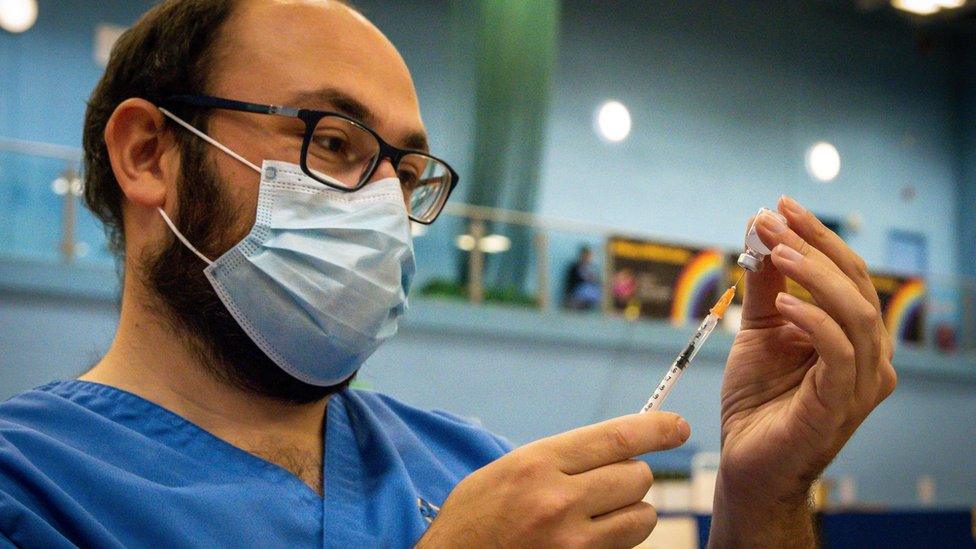Covid-19: Significant increase in NI booster jab rollout expected
- Published
- comments
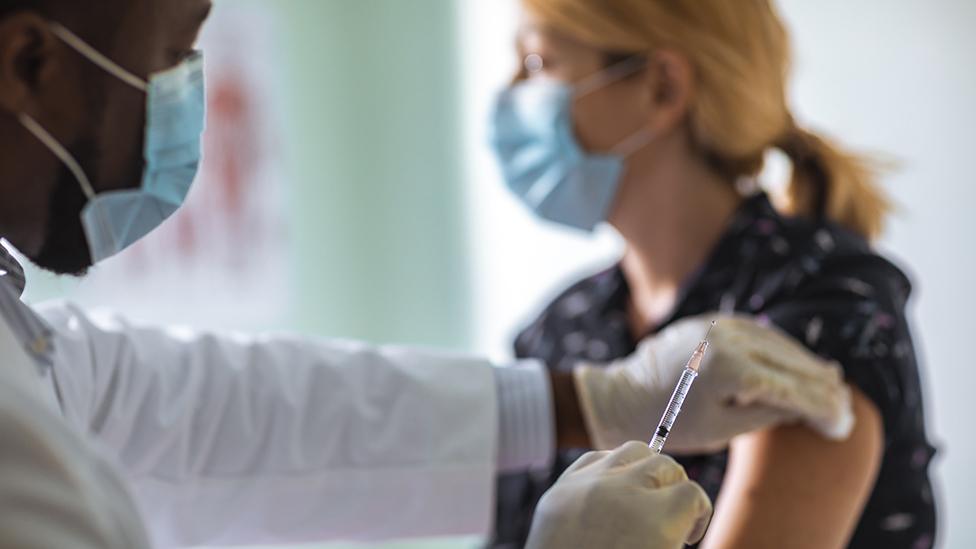
A "significant increase" in the number of people receiving a Covid booster jab is expected in the coming days and weeks, the health minister has said.
Robin Swann reiterated the importance of an accelerated booster jab rollout and said it would provide people with "vital and timely protection".
Northern Ireland's rollout of the booster jab is considerably lower than the rest of the UK.
Only 28% of those eligible have received a booster.
Elsewhere in the UK that figure is more than 50%, with Wales close to 60%.
The figures were revealed following a weekend when the health service experienced another weekend of severe pressures, with long waits for some patients at emergency departments.

Health Minister Robin Swann said he expects to see a "rapidly increasing number" receiving booster jabs
Mr Swann met with senior health officials on Monday for an update on the booster programme.
"I expect to see a rapidly increasing number of people getting these jabs," he said, adding that he had been assured 210,000 doses had already been ordered by GP practices.
He said anyone who was 50 or older and who had their second jab at least six months ago could contact a community pharmacy to book a booster jab, if they did not want to wait to hear from their GP.
It is understood a number of meetings involving the chief medical officer took place last week exploring ways of improving booster delivery.
Among those prioritised were care home residents and staff as well as other healthcare staff.
The breakdown of those vaccinated has not been published.
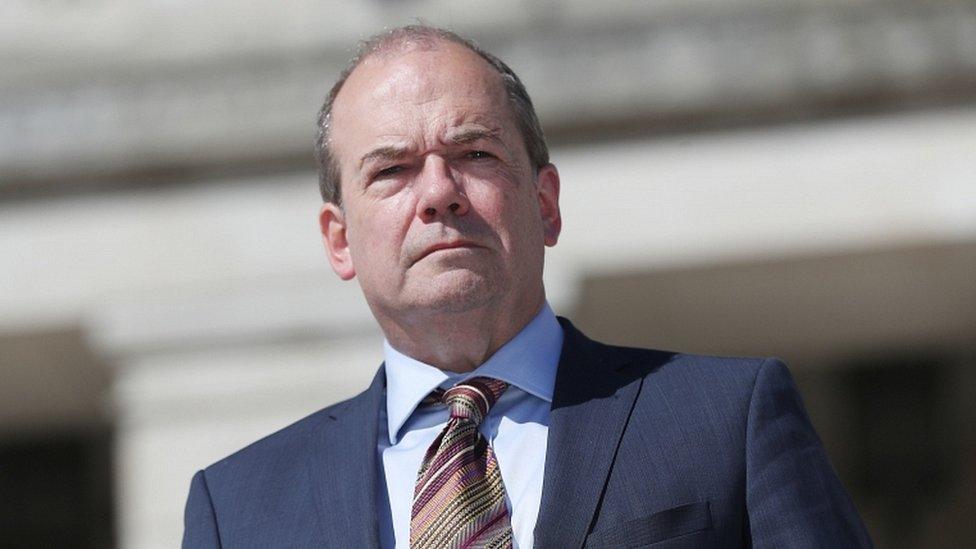
Northern Ireland's chief medical officer Sir Michael McBride took part in meetings about the booster jab programme over the weekend
Rollout of the jab seems to vary from one area to another depending on how individual general practices are calling patients.
While some GPs are separating the flu and booster jabs, others are organising patients to come in for both together.
That might depend on what staff they have available and the size of the practice.
However, the variation is causing some confusion, even frustration, among some members of the public who say they are afraid of missing out.
The message from GPs has been "don't ring us - wait until you are called".
'No concern' over rollout lag
The chair of the British Medical Association in Northern Ireland's GP committee said he was confident that over the next week "vast waves of booster vaccines" would be given alongside the flu jab.
Dr Alan Stout said that it comes as people hit their six-month mark, after having received their second dose of the vaccine.
He added that practices are continuing to prioritise patients, which is the right course of action, and the rollout lag is not a concern.
"Whenever you are given the booster, you are boosting from an already high level of immunity," he said.
"People, at this stage, haven't fallen off a cliff in terms of their immunity. We are giving it at a good time - in winter when they need a boost and which will protect them through to the spring."
Community pharmacies are offering the Moderna Covid-19 booster to those who are eligible.
A list of pharmacies across Northern Ireland who are offering the booster jab is available here., external
In order to keep one step ahead of Covid - according to experts - vaccine uptake is crucial.
Currently 89.73% of the Northern Ireland population aged 18 or older is vaccinated - the aim is 90%.
There is evidence that immunity of the vaccine is waning, especially in the over 50s and 60s where there has been a noticeable increase in hospital admissions.
That is why health officials would like to see the pace quicken around administering boosters.
While the rollout of the booster jab has created "additional" work for GPs, this system has proved to work best as they can contact the public directly.
Some are still coming forward for their first vaccine.
According to the Covid dashboard, over the past week 4,000 people under the age of 30 received their first dose.
During the Halloween break pop-up clinics for 12 to 15-year-olds got under way - data on this group is expected to go live this week.
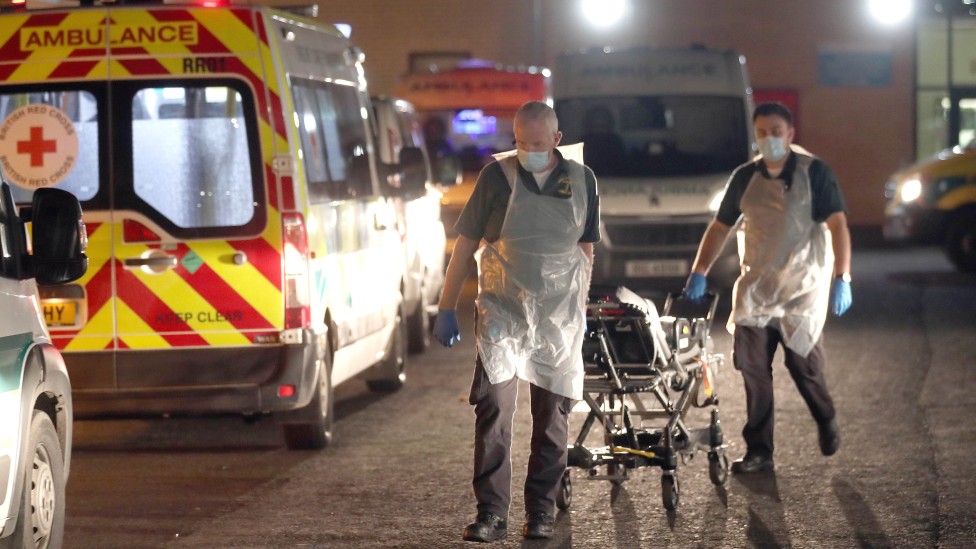
Last December some patients had to be treated in ambulances outside hospital due to pressures on the health service
But it was one of the busiest weekends of the year for hospitals and the ambulance service.
As of Sunday morning, 500 people were waiting in emergency departments - almost 200 for more than 12 hours.
A source at the ambulance service said Saturday was one of the "hardest and busiest shifts" they had ever worked.
Allow X content?
This article contains content provided by X. We ask for your permission before anything is loaded, as they may be using cookies and other technologies. You may want to read X’s cookie policy, external and privacy policy, external before accepting. To view this content choose ‘accept and continue’.
About 90% of ambulance turnaround times were longer than the standard 30-minute wait.
A spokesperson said NIAS continued to work with colleagues in the health service "to find a sustainable solution to the issue of ambulance turnaround times", but current pressures are "such that the current situation is likely to continue".
NIAS said it would seek to ensure that the most seriously ill or injured "receive the quickest and most appropriate response", but that would mean those with "less urgent clinical needs may face longer waits for ambulance response, for which we would apologise in advance".
Irish healthcare workers
In the Republic of Ireland, Health Minister Stephen Donnelly has authorised the use of booster jabs for healthcare workers.
They will begin to be administered at the weekend.
He said this followed advice he had received from the National Immunisation Advisory Committee (NIAC).
Related topics
- Published31 October 2021
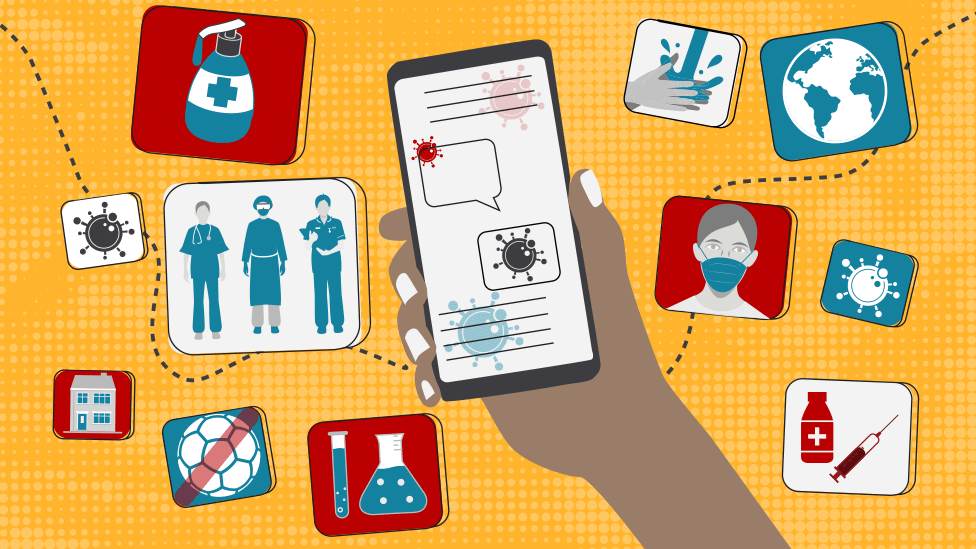
- Published29 October 2021
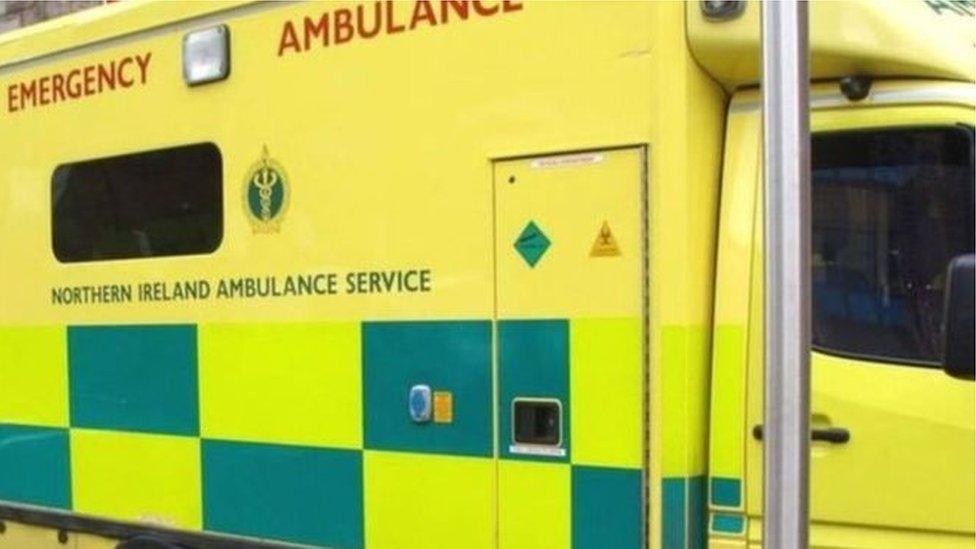
- Published18 October 2021
